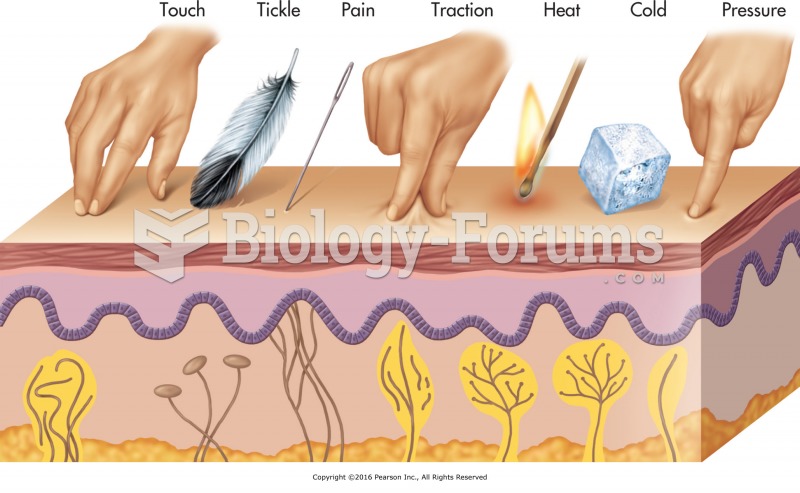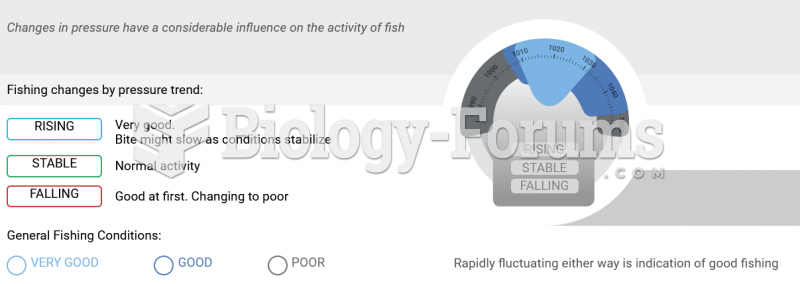|
|
|
There are 60,000 miles of blood vessels in every adult human.
Before a vaccine is licensed in the USA, the Food and Drug Administration (FDA) reviews it for safety and effectiveness. The CDC then reviews all studies again, as well as the American Academy of Pediatrics and the American Academy of Family Physicians. Every lot of vaccine is tested before administration to the public, and the FDA regularly inspects vaccine manufacturers' facilities.
Approximately one in four people diagnosed with diabetes will develop foot problems. Of these, about one-third will require lower extremity amputation.
The human body's pharmacokinetics are quite varied. Our hair holds onto drugs longer than our urine, blood, or saliva. For example, alcohol can be detected in the hair for up to 90 days after it was consumed. The same is true for marijuana, cocaine, ecstasy, heroin, methamphetamine, and nicotine.
Multiple experimental evidences have confirmed that at the molecular level, cancer is caused by lesions in cellular DNA.
 Patients should be encouraged to bring to their health care visit all the substances that they take,
Patients should be encouraged to bring to their health care visit all the substances that they take,
 GI endoscopy. (a) Similar to other forms of GI endoscopy, laparoscopy involves the insertion of a sp
GI endoscopy. (a) Similar to other forms of GI endoscopy, laparoscopy involves the insertion of a sp





